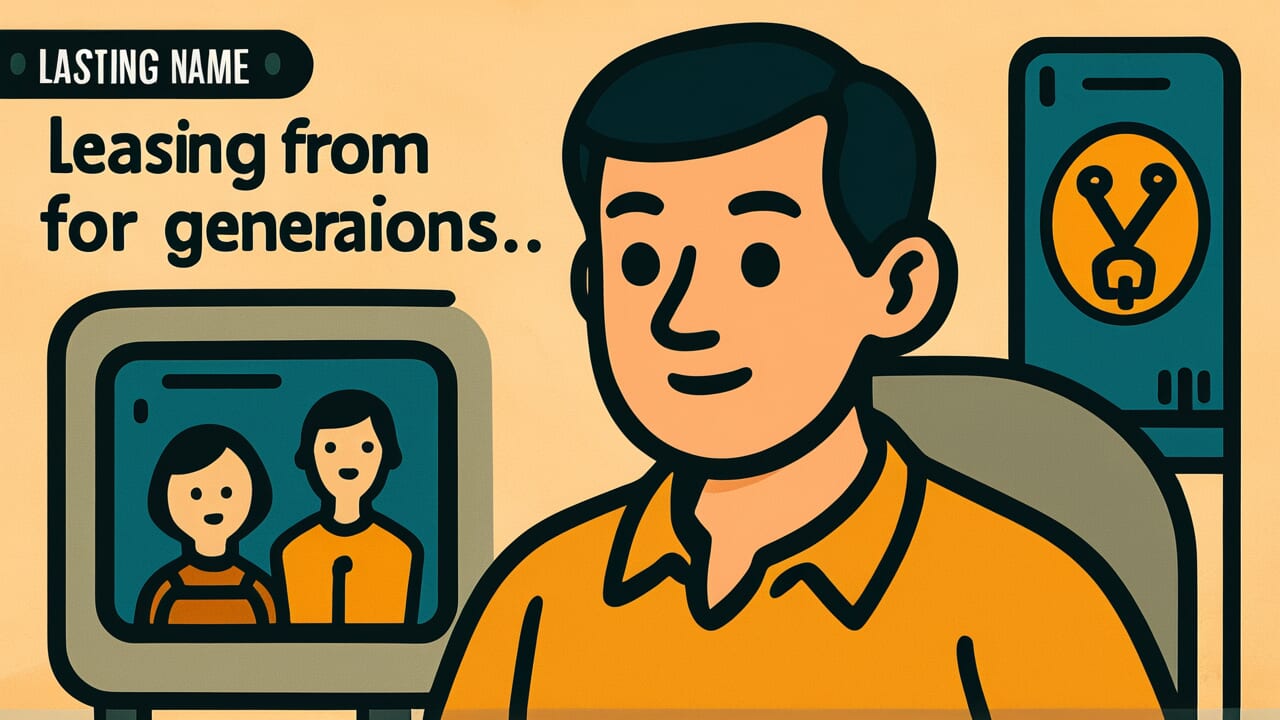How to Read “A person lasts one generation, but a name lasts forever”
Hito wa ichidai na wa matsudai
Meaning of “A person lasts one generation, but a name lasts forever”
This proverb means that human life ends after one generation. However, the reputation and fame someone builds during their lifetime continues long after death.
Physical life has limits. But the honor gained through good deeds and great achievements lives on. Descendants and future generations remember it for a long time.
People use this proverb when thinking about what matters most in life. It teaches that we shouldn’t chase only immediate benefits or pleasures.
Instead, we should choose a way of living that leaves lasting value for future generations. Even today, this saying carries weight when we consider how to live and what to leave behind.
When we see how accomplished people’s achievements continue to be remembered after death, we truly understand this proverb’s truth. Those who did great work or contributed to society live on through their legacy.
Origin and Etymology
No definite historical records explain this proverb’s exact origin. However, the structure of the words offers interesting insights.
The contrast between “ichidai” (one generation) and “matsudai” (forever) forms the core of this saying. “Ichidai” means one lifetime, showing the limits of human physical existence.
“Matsudai” expresses eternity, continuing into the distant future. By placing these two time concepts side by side, the proverb vividly highlights the dual nature of human existence.
Japan has long valued family name and honor. During the samurai era, family honor sometimes mattered more than individual life.
This proverb likely emerged from that cultural background. The body perishes, but achievements and reputation live on through descendants and society.
Buddhist philosophy also influenced this thinking. The body is impermanent and will eventually decay. However, a person’s deeds and virtue remain as karma.
This proverb combines Japanese views on death and honor. It contains deep insight formed by these cultural values.
Usage Examples
- He was a doctor who saved many lives. Truly, a person lasts one generation, but a name lasts forever
- That business leader’s achievements are still remembered today. A person lasts one generation, but a name lasts forever is so true
Universal Wisdom
Everyone wants to leave something behind after death. This proverb has been passed down for so long because it captures this universal human desire.
Physical death is unavoidable fate. But humans have a special ability that other creatures lack. We can transmit our existence across time.
We leave words, works, achievements, and most importantly, we live on in people’s memories.
This proverb shows two aspects of humanity. One is humans as finite beings. The other is humans as beings with infinite possibilities.
Our bodies truly decay after one generation. But the proof that we lived continues forever in different forms.
Our ancestors understood this truth. That’s why they believed how we live matters so much. Do we live for temporary pleasure and profit?
Or do we live to leave something we can be proud of for future generations? They understood this choice determines a person’s true value.
People fear death. But they also fear being forgotten. This proverb might be teaching us how to live forever.
When AI Hears This
Maintaining a human body requires about 2000 kilocalories of energy daily. Living 70 years means consuming roughly 50 million kilocalories total.
What about a name as information? Storing “Oda Nobunaga” as digital data takes only about 10 bytes. The energy cost to save this on a hard drive is less than 0.00001 watt-seconds.
The cost difference between maintaining a human body and a name exceeds 10 trillion times.
Information’s copying characteristics are even more fascinating. Physical humans cannot exist in two places simultaneously. Creating clones through cell division requires enormous energy.
But a name as information gets recorded in books, spreads through word of mouth, and now copies infinitely across the internet. Information theory proves that copying costs can theoretically approach zero.
Matter always deteriorates according to the second law of thermodynamics, moving from order to disorder. Human bodies are no exception.
But information doesn’t deteriorate. Digitization enables perfect replication. This proverb recognized a fundamental asymmetry long before science developed.
The universe’s physical laws are harsh on matter but generous to information.
Lessons for Today
This proverb teaches modern people that life’s quality is measured not by length, but by depth and breadth. Your time in this world is limited.
But how much meaningful work you accomplish in that limited time determines your life’s true value.
Modern society tends to focus only on immediate success and material wealth. However, this proverb teaches the importance of thinking about life from a longer perspective.
How will today’s actions affect not just tomorrow, but decades or centuries from now? Thinking this way changes the weight of daily choices.
What matters isn’t becoming famous. It’s remaining as warm memories in the hearts of people you’ve touched. It’s having your work continue helping others.
These accumulations make your existence shine across time. Why not live today as a gift to the future?



Comments